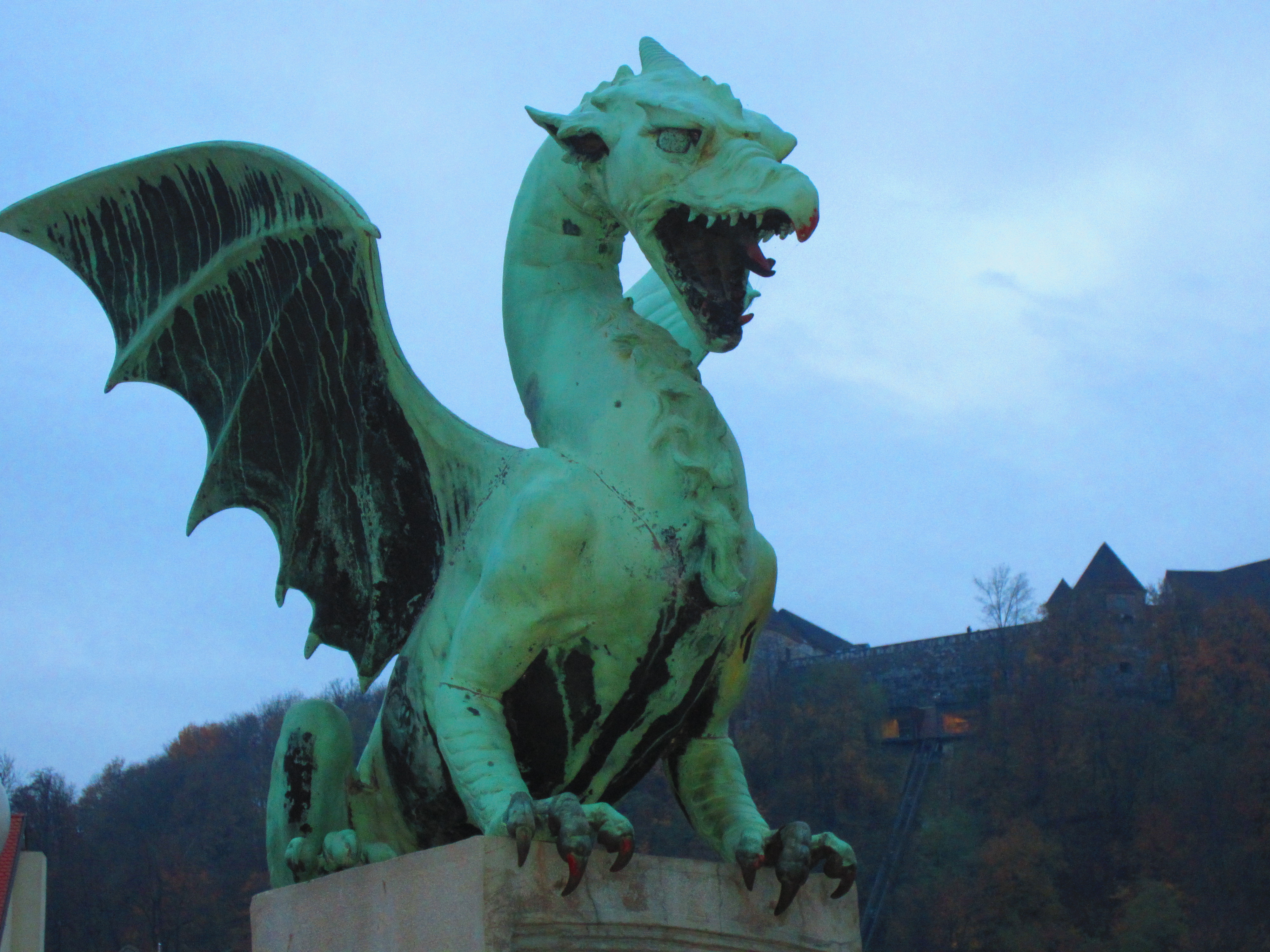Ljubljana is a beautiful small European capital, and we truly enjoyed the relatively empty streets and characteristic architecture. The dragon is the symbol of the city and there is a dragon bridge going across the river in the middle of the city. There is also a medieval castle overlooking the city, that we were fortunate enough to climb the stairs and have lunch at the top. happy guy ate veal and I ate more sausage and potatoes ☺ Also, approximately one in five residents of Ljubljana is a student, so there are a lot of 24-hour food joints.
Our first night, we walked to the main plaza and listened to live blues while I drank thick hot chocolate (the consistency of pudding) and happy guy had Slovenian beer. The music was excellent and some people danced, others socialized, and most just clapped at the end of each song.
During the walking tour the following day, our local tour guide from Ljubljana shared the reasons she felt Yugoslavia fell apart, which included economic, cultural, and religious causes. She quoted a Slovenian poet who said, referring to the Slavic people, “we are brothers by blood, cousins by language, and strangers by culture.” She described Slovenia as being mostly a part of Europe unlike the rest of Yugoslavia, having belonged to Italy and Austria-Hungary in its past but never part of the Ottoman Empire. As a result, the people were more culturally similar to individuals of Western and Central Europe rather than other Communist countries. She also pointed our that the Communism of Yugoslavia was mild in comparison with the USSR or Eastern European countries like Poland and Hungary, since people still retained their passports and could watch Western television and movies. We could really see the similarities of culture with Italy, such as people sitting outside and having drinks in restaurants/cafes with friends, listening to live music, and drinking wine in plazas.
